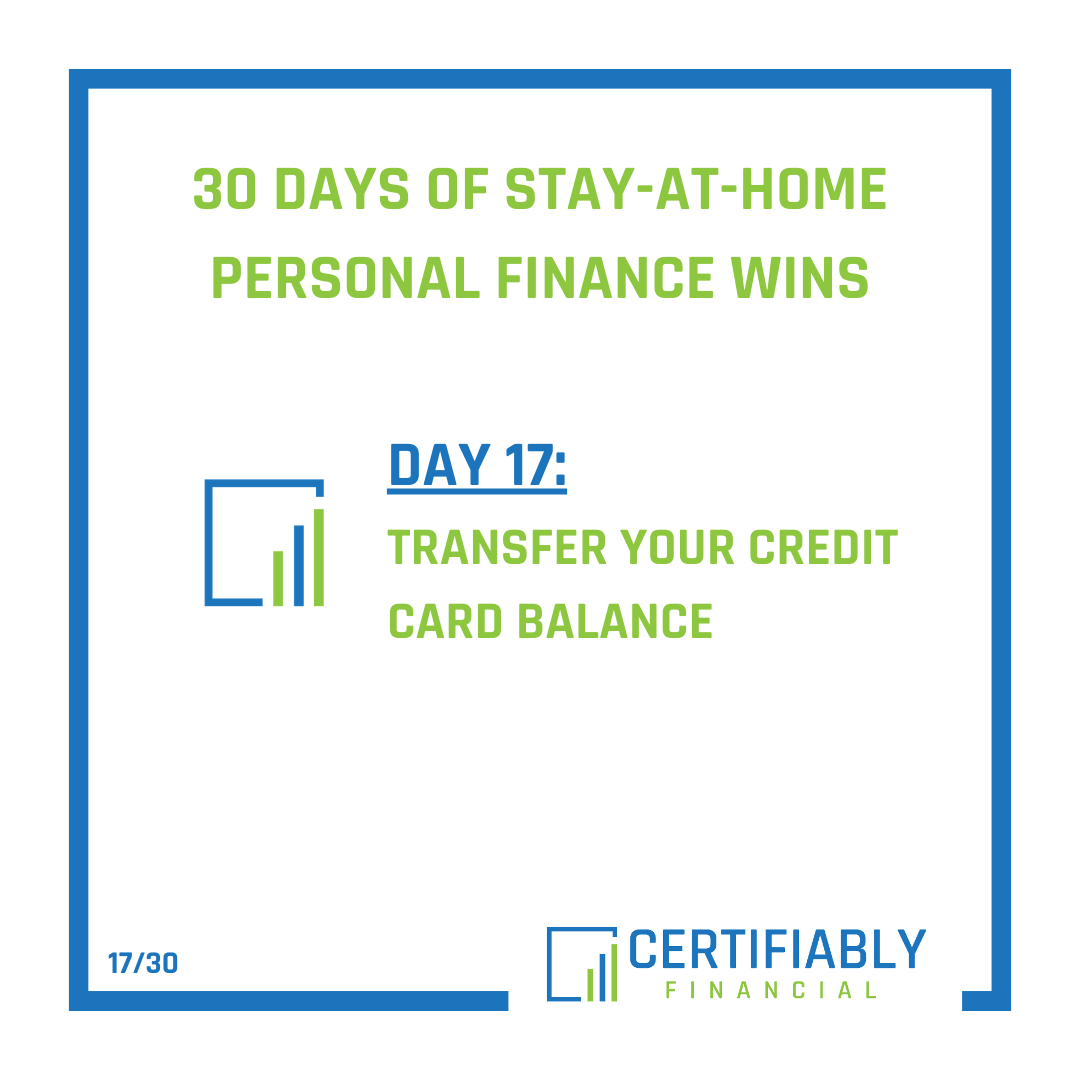What if you were able to come out of this time of social distancing and economic crisis with a stronger and healthier financial life? What if you looked at this as an opportunity to take a little bit of your extra time each day to work on your finances?
Since it takes me about 35 minutes to drive to work in the morning and 45 minutes on the way back home, I have an extra 1 hour and 20 minutes of my day that I don’t have to drive while I’m working from home that I can use to accomplish something. This doesn’t even take into consideration all of the networking and social events that would usually take up some of my time throughout the week.
Obviously, your situation is different than mine (and probably a whole lot different if you have kids at home who would otherwise be in daycare), but I’m guessing that we all have at least a little extra time right now that we can dedicate to our personal finances.
It looks like we’re going to continue to practice our social distancing skills at least through April, and now is a great time to work on creating a better financial situation, so I’m giving you 30 days of stay-at-home personal finance wins throughout April.
Unfortunately, I understand that there are many who have (and who will) lose their jobs during this time of uncertainty and objectively will not come out on the other side of this with a stronger financial situation. Hopefully, many of these personal finance wins can help to lessen the blow and make things easier on them. On the other hand, I think that many of these wins are still relevant to those who are fortunate enough to be in a position to not have to worry about their job and their finances to help them build a healthier financial life.
Day 17: Transfer Your Credit Card Balance
Following up on yesterday’s win of creating a debt pay down strategy you could transfer your credit card balance as a part of that strategy. Unfortunately, the majority of American households have credit card debt and many of them never put a plan together to pay it off. A credit card balance transfer could be a useful part of that strategy.
Utilizing a balance transfer card could help you to get ahead and make some progress towards paying down your credit card debt by lowering your interest rate for a period of time. There are many cards that offer a 0% interest rate and even some that don’t require a balance transfer fee. If this is something that you’re interested in looking into to help you make some progress towards paying down your credit card balance, then you can search for a competitive card that makes sense for you.
Be sure to be aware of any fees that are charged, the interest rate on the new card, the length of time that interest rate remains in place, and how using a balance transfer card could affect your credit score.
Something else to take into consideration that this is a treatment to the symptom, not a treatment of the cause. In many cases, the cause of a credit card balance is the lack of a proper emergency fund and/or overspending. While transferring your credit card balance to a card with a low introductory rate could help you in the short-term, you also may need to do some work to get your personal finances in order and treat the cause that led to the balance in the first place.
30 Days Of Stay-At-Home Personal Finance Wins
- Day 1: Understand The CARES Act
- Day 2: File for Unemployment or Short-Time Compensation
- Day 3: Request Forbearance
- Day 4: File Your Tax Return (Maybe)
- Day 5: Commit to Yourself
- Day 6: Practice Financial Distancing
- Day 7: Don’t Panic
- Day 8: Create An Online Shopping Strategy
- Day 9: Find & Store Your Login Information
- Day 10: Review Your Spending
- Day 11: Free Up Cash Flow
- Day 12: Automate Bill Payments
- Day 13: Plan To Increase Your Emergency Fund
- Day 14: Update Your Beneficiaries
- Day 15: Plan for Big Expenses
- Day 16: Create A Debt Pay Down Strategy

